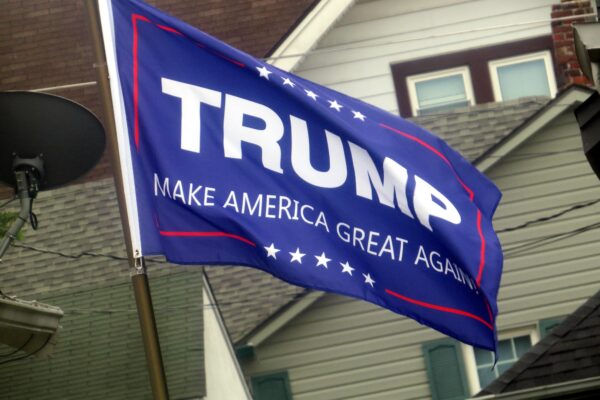POTUS Shield is a group of Pentecostal leaders devoted to helping President Donald Trump bring about the reign of God across the country and world. Many of the “prophets” and “apostles” taking part in POTUS Shield are part of the fastest growing form of Christianity, what CRCC’s Richard Flory and Brad Christerson refer to as “Independent Network Charismatic” Christianity. Flory, CRCC’s Senior Director of Research and Evaluation, and Christerson, a CRCC fellow, report on INC faith groups and their self-proclaimed “apostles” in their book, The Rise of Network Christianity: How Independent Leaders Are Changing the Religious Landscape.
Right Wing Watch interviewed Flory and Christerson and refers to their book for an article about POTUS Shield and the political aspirations of “INC” Christianity. The piece also ran in Salon. Here’s an excerpt:
The product that INC Christianity is promoting, write Christerson and Flory, “is not primarily the ability to access supernatural power to gain converts and build congregations, but, more important, to participate in the establishment of God’s kingdom on earth in the here and now.”
Christerson and Flory argue that the network model allows charismatic leaders to broaden their influence while remaining free of the bureaucracies and oversight that would come from trying to build a large organization. An individual places him or herself under the spiritual authority or “covering” of an established prophet—getting a spiritual imprimatur in return for showing up at their conferences and sending money up the chain. INC leaders have expanded their “market share” within American Christianity by offering powerful supernatural experiences and leveraging the power of digital media tools to promote their brands as well as their beliefs and practices. Chuck Pierce, whose Glory of Zion Ministries runs a Global Spheres Center in Texas, has about 60,000 people sending him money, more than even the biggest megachurch congregation.
In some ways, Trump’s relationship to traditional political structures mimics these network leaders’ relationship to traditional church and Religious Right institutions: he relies on his charismatic personality; operates his own media; and believes old structures need to be swept away. Trump speaks to his followers “like a televangelist,” says University of Pennsylvania religion scholar Anthea Butler. And, if Amedia is right, Trump also sees his election victory as the result of divine intervention and his presidency as a mission from God. Butler notes that apostolic leaders defend Trump in the same way that religious leaders often defend themselves against their own critics, citing a scriptural admonition to “touch not God’s anointed.”
Christerson and Flory postulate that while INC leaders have a broad ability to spread their beliefs with followers, their political impact could be limited by the fact that they focus more on spiritual warfare and intercessory prayer than on setting up structures to engage in the nitty-gritty work of political organizing.
Christerson told Right Wing Watch that he has seen evidence of a “symbiotic” relationship between the Religous Right organization and INC movement:
“The Religious Right gets followers, support and energy from INC, and INC gets visible examples of ‘kingdom-minded’ believers they can support and pray for in government.” He said he has seen “prophecies” that God is using Trump to transform society by appointing “kingdom-minded” people—like Energy Secretary Rick Perry, Education Secretary Betsy DeVos, and Housing and Urban Development Secretary Ben Carson—to top levels of government, even though they may be associated with different strains of Christianity.




